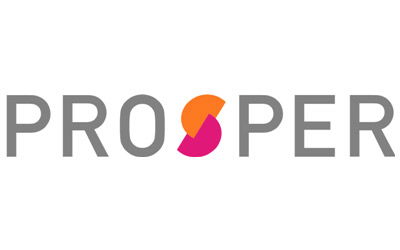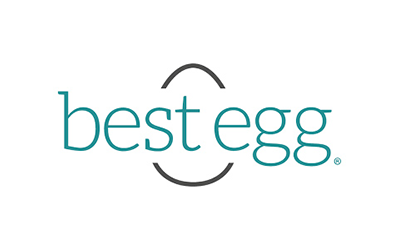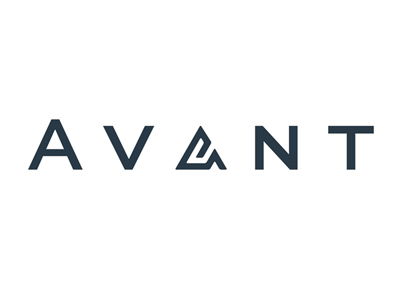Credit card debt is rising, and interest rates are hitting double digits. A personal loan can help you consolidate balances or cover large expenses—often at a lower rate.
Whether you’re dealing with medical bills, planning a major purchase, or just want to lock in fixed payments, the right personal loan can save you money and reduce financial stress. We reviewed the top lenders for July 2025 and narrowed it down to those offering competitive rates, fast funding, and flexible terms for borrowers across the credit score spectrum.
10 Best Personal Loans
We’ve handpicked the top personal loan lenders based on rates, fees, approval speed, and borrower flexibility. Whether you have excellent credit or you’re rebuilding, there’s an option here that can help you borrow with confidence.
1. Upgrade
Upgrade is a solid choice for borrowers with fair to good credit who want fast funding and flexible repayment options.
2. Prosper
Prosper is ideal for borrowers with decent credit who are open to peer-to-peer lending. Instead of funding directly from a bank, loans are backed by individual investors.
3. SoFi
SoFi is best for borrowers with strong credit and higher incomes who want fee-free personal loans and added protections.
4. Upstart
Upstart is a great option for younger borrowers or those with limited credit history.
5. LightStream
LightStream is ideal for borrowers with excellent credit who want high loan amounts and no fees.
6. LendingClub
LendingClub is a peer-to-peer lender that works well for borrowers with fair to good credit who want a straightforward, fixed-rate loan.
7. Best Egg
Best Egg is a strong choice for borrowers with good to excellent credit who want competitive rates and fast access to funds.
8. Avant
Avant is a solid choice for borrowers with fair credit who need a smaller loan amount and quick funding.
9. OneMain
OneMain is a good option for borrowers with poor credit who may not qualify elsewhere.
10. Discover
Discover is a trusted lender for those who want a predictable loan with no hidden costs.

How Personal Loans Work
Personal loans give you a set amount of money upfront that you repay over time with fixed monthly payments. They’re one of the most flexible ways to cover larger expenses without using credit cards.
- Lump sum funding: You get all the money at once and repay it over a set term.
- Unsecured loans: Most don’t require collateral, but secured options are available.
- Rate based on credit: APR depends on your credit score, income, and loan length.
- Common uses: Debt consolidation, medical bills, home repairs, car expenses, and more.
Types of Personal Loans
There are a few different personal loan structures, and each one works best in specific situations.
- Unsecured personal loans – Unsecured loans don’t require collateral, which makes them riskier for lenders. You’ll typically need good credit to qualify, and rates may be higher if your score is lower.
- Secured personal loans – Secured personal loans are backed by collateral, like a car or savings account. They can offer lower rates and easier approval, but you risk losing the asset if you fall behind on payments.
- Peer-to-peer loans – Instead of borrowing from a bank, you’re matched with individual investors through an online platform. P2P loans may offer flexible terms, but approvals can take longer and fees may be higher.
- Cosigned loans – Adding a cosigner with stronger credit can improve your chances of approval. Just know that if you miss payments, your cosigner’s credit will take a hit too.
How to Choose the Right Personal Loan
Finding the right loan starts with knowing your credit, timeline, and goals. Here’s what to consider before you apply:
- Your Credit Score: If your score is under 670, look for lenders that work with fair or bad credit.
- How Fast You Need the Money: Some lenders fund within a day, others take several business days.
- Fees and Fine Print: Watch for origination fees, late fees, and whether there’s a prepayment penalty.
- Loan Amount Needed: Some lenders cap at $35,000, while others go as high as $100,000.
- Loan Term Flexibility: Shorter terms cost less overall but have higher payments. Longer terms lower the payment but cost more in interest.
Personal Loan Fees and Costs Explained
Personal loans aren’t just about the interest rate—you need to factor in all potential fees to understand the true cost. Here’s what to watch for:
- APR vs. interest rate: APR includes both the interest rate and any upfront fees, giving you a better sense of the total borrowing cost.
- Origination fees: Some lenders charge 1% to 10% of the loan amount just to process your application. This fee is often deducted from your loan before you receive the funds.
- Prepayment penalties: While many lenders don’t charge this, a few still penalize you for paying off your loan early.
- Late fees: Missing a payment could result in a flat fee or a percentage of your payment amount. Some lenders may waive this if you quickly catch up.
- How fees impact cost: Even a low interest rate can become expensive if fees are high. Always compare APRs—not just base rates—before deciding.
How to Get Approved for a Personal Loan
Improving your odds of approval starts before you apply. Here’s how to get ready:
- Check your credit score first: Knowing where you stand helps you target lenders that match your profile.
- Compare prequalified offers: Many lenders offer soft credit checks so you can see your rates without hurting your score.
- Gather income and employment documents: Pay stubs, tax returns, or bank statements may be required.
- Lower your debt-to-income ratio: Paying off existing debts or boosting your income can help you qualify for better terms.
- Consider adding a co-signer: If your credit is limited, some lenders allow a co-signer to strengthen the application.
Alternatives To Personal Loans
A personal loan isn’t the only way to cover expenses. Depending on your needs, these options might be a better fit:
- Balance transfer credit cards: Great for paying off smaller credit card debt with a 0% intro APR, but only if you can pay it off before the promo period ends.
- Home equity loans or HELOCs: These use your home as collateral and may offer lower rates—but they come with the risk of foreclosure if you fall behind.
- Buy now, pay later services: Useful for short-term purchases, but be careful with fees and missed payment penalties.
- 401(k) loans: You’re borrowing from your own retirement account, which avoids credit checks but could hurt long-term savings.
- Credit builder loans: These help improve your credit profile by building a payment history—ideal if you’re not ready to qualify for a personal loan yet.
Frequently Asked Questions
Can I have more than one personal loan at a time?
Yes, it’s possible to have multiple personal loans, but it depends on the lender and your financial profile. Some lenders allow a second loan after a certain period, while others require you to pay off your first loan before applying again. Keep in mind that having more than one loan can affect your debt-to-income ratio and credit score.
Will a personal loan affect my credit score?
A personal loan can impact your credit score in both positive and negative ways. Applying will result in a hard credit inquiry, which may cause a small dip. But if you make on-time payments and lower your credit utilization (especially through debt consolidation), it could help improve your score over time.
What is a good credit score for a personal loan?
A good credit score for a personal loan is typically above 680. The higher your credit score, the more likely you are to qualify for a loan and get a lower interest rate. However, some lenders specialize in bad credit loans.
What happens if I miss a personal loan payment?
Missing a payment can lead to late fees, added interest, and damage to your credit score. Some lenders offer a grace period or hardship assistance, but after 30 days, the missed payment is often reported to credit bureaus. If you think you’ll miss a payment, contact the lender as soon as possible to discuss options.
Do personal loans have fixed or variable interest rates?
Most personal loans come with fixed interest rates, meaning your monthly payment stays the same over the life of the loan. Some lenders do offer variable-rate loans, but they’re less common and come with the risk of rising payments if rates go up.
Are there personal loans specifically for medical expenses?
Yes, some lenders market personal loans specifically for medical expenses, but they work the same way as regular personal loans. You can also use a standard personal loan to cover medical bills, dental work, or elective procedures. Just be sure the rates and terms make sense for your situation.
Learn More about Personal Loans
- What Is an Installment Loan? – Learn about installment loans, how they work, and whether they’re the right choice for you.
- Best Personal Loans for Low-Income Earners – If you’re a low-income earner, you may think that personal loans are out of reach. But there are options available! Find out more here.
- Best Personal Loans for Good Credit – Looking for the best personal loan options for good credit? Find out which lenders offer the best rates and terms for your needs.
- Emergency Loans for Bad Credit – Bad credit doesn’t have to mean you’re out of options for emergency loans. Find out which lenders may be willing to work with you.
- Loans for People with Bad Credit or No Bank Account – Need a loan but have bad credit and no bank account? Our expert guide compares options from top lenders for borrowers in this situation.













